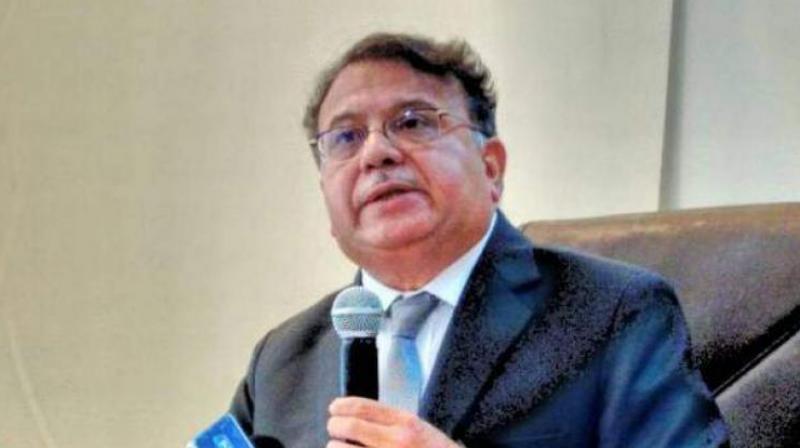Don't de-criminalise economic offences: Justice AP Shah to PM Modi

Hyderabad: The letter of Justice AP Shah, former Chief Justice of the Delhi High Court and former Chairman of the Law Commission of India, to Prime Minister Narendra Modi asking the latter on de-criminalising economic offences in India that has become a hot topic in legal circles.
Justice Shah in his letter to the Prime Minister stated “instead of increasing transparency and accountability and making deterrents for wrong doers, an attempt is being made to dilute various legislations which could result in a spurt in corporate offences especially”. Former judges and several advocates of the Hyderabad High Court while supporting the views of Justice Shah felt that it was the primary responsibility of the Legislature to make deterrent laws that would protect the civil society from wrong doers and also ensure the strict enforcement of the existing statutes.
Justice Gopalakrishna Tamada, former judge of the Hyderabad High Court, felt it would not be good for the civil society if elected governments changed or diluted the spirit of laws as per their convenience.
Referring to the demand of Justice Shah for filing an appeal in the Satyam Computers fraud case, the former judge felt that “It is always good for governments, either at the Centre or at the state, to appeal whenever an adverse judgement is given and not filing an appeal would certainly create doubts in the minds of the public that the government had not appealed only to protect somebody.”
Justice Shah demanded that the Central Bureau of Investigation (CBI) file an appeal against the orders of the Sessions Court granting bail to the accused in the Satyam scam to restore public confidence in the rule of law.
Citing the demand of Justice Shah for the appointment the Lokpal, Justice Gopalakrishna said that he was unable to understand why the NDA government, which came to power on an anti-corruption plank, was delaying the appointment.
Referring to the intervention of the Supreme Court in 498 A of the IPC, which deals with dowry harassment cases, after many allegations of misuse of the provision, the former judge felt that the Union government had the power to amend laws whenever there were allegations of misuse, but in a democratic country the rulers had to make the statutes for public good not to protect wrong doers.
Justice P. Lakshman Reddy, former judge of the AP High Court, while appreciating the move of Justice Shah said, “No political party in the country is sincere enough to do public good. They are dependent on corporate funding.” He asked why corporates were not bro-ught under the purview of the Right to Information Act which would enable citizens to know the source of funding of political parties. He said that on this issue all the political parties are together to protect the interests of the corporates. Referring to the alleged attempts to dilute the RTI Act, the former judge said “The existing RTI Act is a strong weapon in the hands of the public and diluting it is unfortunate, though there is an increase in cases of killing and threatening of whistle blowers.”
He said that the rulers had no guts to attempt the Anti-Defection Law which was aiding unethical politics, but they always made efforts to make laws to protect big wigs. He said “It is unfortunate that the government is crushing the voices raised; we are seeing the government question even the right of the people to approach courts.”
Mr C. Damodar Reddy, president of the Telangana High Court Advocates Association, referring to the proposed amendments to the RTI Act that the proceedings pending before the Commission shall abate on the death of the appellant, said that Justice Shah rightly pointed out that “such provision provides a perverse incentive to vested interests to silence the information seeker”. Citing the remarks of Justice Shah on political appointments to PSUs, Mr Damodar Reddy said PSUs were the spine of the country’s economy and making them political rehabilitation centres and filling them with persons who did not possess the required skills would weaken the economy of the country.

